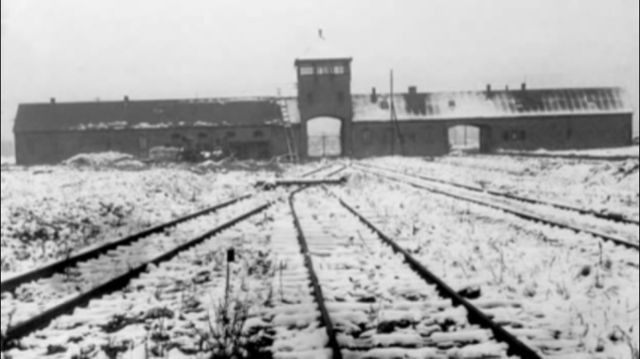Remembering the Holocaust
April 11, 2018
The population of Cleveland is about 385,000 people. Approximately 6 million Jews were killed in the Holocaust. To put that in perspective, there would be the same number of casualties if the entire population of Cleveland was murdered…15 and a half times.
This year, Yom HaShoah, Holocaust Memorial Day, begins April 11 at sundown and ends the evening of April 12.
During Yom HaShoah, people around the world honor and remember the lives lost in the Holocaust. As Hitler and the Nazi party rose to power before and during World War II, Jews across Europe were rounded up into crowded ghettos and concentration camps. Children and adults alike were methodically gassed and shot.
I am an Eastern European Jew. Fortunately, my ancestors emigrated to North America in the early 1900s. Although my direct line of ancestors made it out of Europe in time, some extended relatives stayed in European countries such as Poland, Russia and Hungary. Some of them did not survive the Holocaust.
I remember my grandfather recounting the tattoo his cousin got in a concentration camp. His cousin avoided talking about the horrors he experienced, until finally opening up to my aunt many years later. When I learn about the Holocaust, I am reminded that my ancestors survived merely by chance. I am reminded of how close I was to not even being born. I am reminded that I would have many more cousins, aunts and uncles today, had the Holocaust not happened. Now they are a statistic, a mere handful out of six million.
According to Pew Research Center, approximately 9.5 million Jews lived in Europe in 1939. In 1945, only about 3.8 million Jews lived in Europe. Jews were not the only persecuted demographic. Other victims of the Holocaust include Communists, Jehovah’s Witnesses, the disabled and non-heterosexuals, among others.
In order to prevent more mass genocides, it is imperative that the atrocities of the Holocaust are never forgotten. As we move into the future, we must remember that we are products of history, and the lessons we learn from those who came before us that will help those who come after us.
“[Holocaust remembrance] teaches us about human rights, seeing through falsifications and lies from different countries [and] dictators and learning the serious issues when we don’t pay attention [or] aren’t aware of human right issues,” said Solon High School senior Luisana Gonzalez.
Although Hitler is the face of the Nazi party, it is also important to remember that there were people who stood idly by and watched anti-Semitism rise without voicing dissent.
“There are people who say, ‘I never spoke up because it was never me. They took this group, but it wasn’t me. They took that group, but it wasn’t me. And finally, they took me and there’s no one left to speak for me,’” said Fairmount Temple congregant and SHS senior Justin Pollak, paraphrasing Hitler opponent Martin Niemoller’s famous quote. “It could have been anyone, and just because you’re not Jewish [or] you weren’t the group being persecuted in that situation, doesn’t mean you won’t be the one in whatever this next situation is.”
This begs the question, what can each person do to prevent and curtail prejudice and genocide?
One of the most crucial tasks is to instill open-mindedness in our generation and future generations. In the 1930s, Nazis used Jews as scapegoats, instigating extreme anti-Semitism through mass propaganda. Open-mindedness creates religious tolerance, and peaceful sentiments can halt hatred.
Promoting open-mindedness can come in the form of standing up for a classmate being bullied for his or her beliefs. It can come in the form of voicing opposition to religious intolerance by participating in rallies or writing letters to representatives. It can come in the form of making an effort to understand a different culture, merely by asking questions. There are countless methods for encouraging understanding and acceptance, and it does not matter so much how you encourage it, as long as you make an effort.
“Just because people are different doesn’t mean there is anything wrong with them,” Pollak said. “It sounds so simple and stupid saying it outloud, but there are so many people that just don’t understand that.”


Naftali Mahpour • Oct 13, 2025 at 11:23 am
Nicely done, thank you